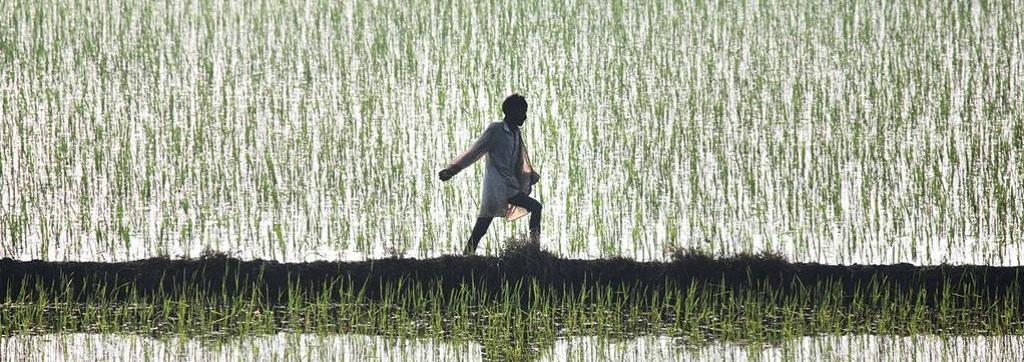In a noble policy that would have a far-reaching impact on the ecology of North India, the Haryana government has announced 7,000 rupees per acre incentive to the farmers who will move away from water-guzzling paddy. JP Dalal, Haryana’s Agriculture and Farmers Welfare Minister, explained to The Indian Express that this is expected to end the cultivation of paddy on 2 lakh acres.
The Agriculture minister said, “It’s easier for our farmers to supply fresh fruits and vegetables to the people of Delhi, thus, the government will encourage the people who grow paddy to take up horticulture.”
The soil quality in Haryana and Punjab has deteriorated so much in the last decade that it will soon become barren lands if the cultivation of paddy is not stopped. The Haryana government has already announced incentives but the Punjab government is hell-bent on continuing with the outdated policy. It is time that the farmers of Punjab are forced to move away from paddy because the groundwater is depleting to scary levels.
Ideally, groundwater should be available at a depth of 50 to 60 feet in a state like Punjab, but guess how much one needs to dig to install a tube well in the state. 200-300 ft! And why so? Because in Punjab, groundwater is used indiscriminately to cultivate paddy which is a crop not natural to the western part of the country.
As per data from the Central Groundwater Board (CGWB), water is overexploited in states like Punjab, Haryana, and Rajasthan- the states which were at the forefront of the Green revolution. Farmers in these states used to grow pulses and maize before the 1960s but shifted to wheat after the green revolution and later to paddy production – a crop suited for water-rich states like West Bengal, Bihar – thanks to free power by the state government and MSP by the union government.
“Paddy (rice) requires far more water than other crops and as farmers started cultivating paddy, the need for tube wells arose. The extraction of groundwater only increased as farmers shifted from the use of monoblock pumps in the 1980s to other types like submersible pumps,” says Magar Singh, a farmer from the state of Punjab.
Given the fact that the Union government started giving MSP on rice, it became a handsomely remunerative crop compared to pulses and vegetables. So, farmers from states like Punjab installed tubewells and today almost every big farmer in the state has four to five tubewells. With indiscriminate use of groundwater, the water level started depleting and today it has reached around 300 ft; a tubewell installation now costs more than a lakh rupees, thanks to depleting levels of groundwater.
There are a plethora of problems with Northwestern states producing paddy because the soil is not alluvial (read suited to paddy production); there is not enough rain; there is no market (the families in Northwestern states prefer wheat for staple diet and the consumption of rice is little). The people in these states have been addicted to paddy production for the last few decades given billions of dollars of subsidy on these crops.
Around 80 per cent of the Union government’s total procurement consists of Wheat (37 per cent) and Rice (43 per cent), and around 70 per cent of the total wheat and rice procurement is done from Punjab and Haryana because these states have a sophisticated APMC network.
The MSP regime, for which the farmers are protesting, is already doing massive damage to the people of Punjab and Haryana. If the state government keeps giving free power and the union government continues to provide MSP, this indiscriminate use of groundwater will never stop. Thus, the government of Punjab also needs to wake up like the government of Haryana and should incentivize the crops suited to the area instead of paddy.

